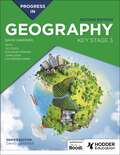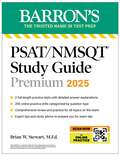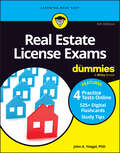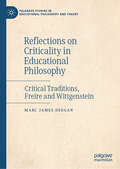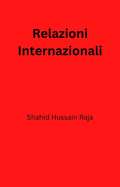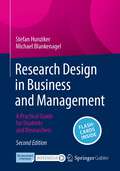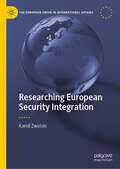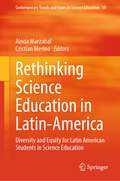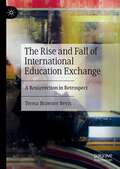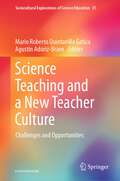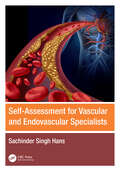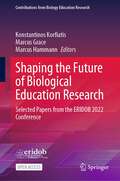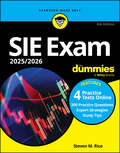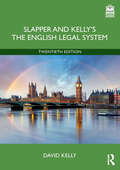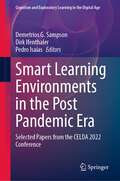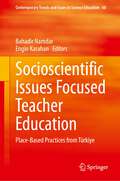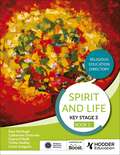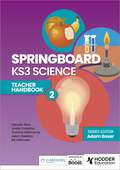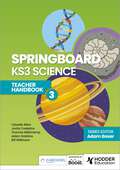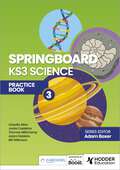- Table View
- List View
Progress in Geography: Key Stage 3, Second Edition
by David Gardner Jo Coles Catherine Owen John Lyon Eleanor BarkerPut progression at the heart of your curriculum with this hugely popular KS3 course from David Gardner, a leading authority in the Geography community.Fully reviewed and updated - with three new units - this forward-thinking course will fascinate young geographers, incorporating many diverse voices and exploring 'big ideas' such as place, the Earth's systems, the impact of colonialism and the complexities of development.> Choose the most cost-effective course. With 180 ready-made lessons in a single book, Progress in Geography provides a full three-year KS3. The free accompanying Progression Framework maps progress from Year 7 to Year 9, across the National Curriculum and towards the GCSE Assessment Objectives.> Ensure progress in geographical skills, knowledge and understanding. Every lesson and every unit builds upon prior learning and links to future learning, fully embedding geographical enquiry. Each double-page spread represents one lesson, with rich geographical resources, up-to-date data and case studies for pupils to interpret, analyse and evaluate.> Align with Ofsted's expectations. Curriculum expert David Gardner has fully integrated disciplinary, substantive and procedural knowledge, as recommended in Ofsted's 2023 Geography Subject Report and the GA Curriculum Framework.> Assess and demonstrate pupil progress. Ideal for formative assessment, lesson activities create a stepped approach to enquiry learning, guiding pupils through the geographical data as they answer each lesson's enquiry question. End-of-unit review lessons create a reflection point, facilitating medium-term summative assessment and giving a broader view of progress.> Lay firm foundations for GCSE. Key vocabulary, command words and concepts are introduced gradually, preparing pupils for the content and question types they will encounter at GCSE, with a particular focus on analysis and evaluation, plus newly added decision-making activities.
Progress in Geography: Key Stage 3, Second Edition
by David Gardner Jo Coles Catherine Owen John Lyon Eleanor BarkerPut progression at the heart of your curriculum with this hugely popular KS3 course from David Gardner, a leading authority in the Geography community.Fully reviewed and updated - with three new units - this forward-thinking course will fascinate young geographers, incorporating many diverse voices and exploring 'big ideas' such as place, the Earth's systems, the impact of colonialism and the complexities of development.> Choose the most cost-effective course. With 180 ready-made lessons in a single book, Progress in Geography provides a full three-year KS3. The free accompanying Progression Framework maps progress from Year 7 to Year 9, across the National Curriculum and towards the GCSE Assessment Objectives.> Ensure progress in geographical skills, knowledge and understanding. Every lesson and every unit builds upon prior learning and links to future learning, fully embedding geographical enquiry. Each double-page spread represents one lesson, with rich geographical resources, up-to-date data and case studies for pupils to interpret, analyse and evaluate.> Align with Ofsted's expectations. Curriculum expert David Gardner has fully integrated disciplinary, substantive and procedural knowledge, as recommended in Ofsted's 2023 Geography Subject Report and the GA Curriculum Framework.> Assess and demonstrate pupil progress. Ideal for formative assessment, lesson activities create a stepped approach to enquiry learning, guiding pupils through the geographical data as they answer each lesson's enquiry question. End-of-unit review lessons create a reflection point, facilitating medium-term summative assessment and giving a broader view of progress.> Lay firm foundations for GCSE. Key vocabulary, command words and concepts are introduced gradually, preparing pupils for the content and question types they will encounter at GCSE, with a particular focus on analysis and evaluation, plus newly added decision-making activities.
PSAT/NMSQT Premium Study Guide: 2025: 2 Practice Tests + Comprehensive Review + 200 Online Drills (Barron's Test Prep)
by Brian W. Stewart M.Ed.Barron&’s PSAT/NMSQT Study Guide Premium, 2025 includes everything you need to be prepared for exam day with comprehensive review and practice that reflects the new digital PSAT/NMSQT!All the Review You Need from an SAT Expert An expert overview of the digital PSAT/NMSQT, including answers to frequently asked questions, advice on curbing test anxiety, techniques for the digital interface, and information about the National Merit Scholarship program In-depth subject review and practice questions covering the each section of the test for Reading and Writing and Math The latest strategies for success for all question types on the digital SAT, such as Command of Evidence, Words in Context, Rhetorical Synthesis, and Transitions Tips throughout from the author--an experienced SAT tutor and test prep professional Practice with Confidence 2 full-length digital PSAT practice tests in the book- 1 diagnostic test to assess your skills and target your studying plus 1 fully adaptive Additional practice questions on each subject throughout the review chapters Advanced skill-building practice drills for students seeking National Merit Scholarship recognition Detailed answer explanations for all practice questions Online Practice 200 online practice drills Detailed answer explanations Scoring to check your learning progress An online vocabulary appendix for extra review
Real Estate License Exams For Dummies: Book + 4 Practice Exams + 525 Flashcards Online
by John A. YoegelGet ready to close on your new career as a real estate agent Real Estate License Exams For Dummies is packed with all the information you need to know to get your license and begin your lucrative and rewarding real estate career. With four practice tests and 525 flashcards online, you'll be well on your way to launching the real estate career of your dreams. Plus, there are more practice questions throughout each of the subject review sections in the book, so you can work through all the topics covered on the test. With real estate laws for all 50 states, this is your perfect study guide, no matter where you’re planning to work. Learn the latest on real estate taxes, contracts, mortgage types, and beyond. Then, get test-day tips that will help you succeed. Real estate, here you come. Review everything you need to know to pass your real estate licensing exam Get proven study techniques and testing strategies to help you earn a high score Use flash cards, a glossary of terms, and online practice tests to prepare Learn about new fair housing initiatives and other changes in the marketLooking to start or restart a career in real estate? Real Estate License Exams For Dummies is your guide.
Reflections on Criticality in Educational Philosophy: Critical Traditions, Freire and Wittgenstein (Palgrave Studies in Educational Philosophy and Theory)
by Marc James DeeganThis book navigates global educational policy concerning critical thinking skills and competencies. The author explores the concept of criticality from the perspectives of several critical traditions, and draws on the works of Paulo Freire and Ludwig Wittgenstein. The diverse and intricate ideas, methods and ways of thinking that emerge are examined in the new perspectival space of ‘criticality scholarship’. Pursuing his own political and philosophical aspirations, the author endeavours to link a critical education with the promotion of democracy and social justice. Opportunities for further empirical and theoretical research are signposted. The book will be of interest to scholars in educational philosophy.
Relazioni Internazionali: Concetti Base e Questioni Globali
by Shahid Hussain RajaQuesta è una raccolta di 46 Saggi lunghi su diverse tematiche globali, scritti per coloro che sono desiderosi di sapere quali sono le grandi questioni e le idee che plasmano la Politica Globale, ma non hanno il tempo di fare ricerche su Internet per comprenderle a fondo. Dalla Globalizzazione alla Crisi Sirian da un lato, e dallo Scontro di Civiltà alla Fine della Storia, dall'altro, questi saggi trattano argomenti di cui quasi tutti hanno una conoscenza rudimentale, ma che non sono in grado di approfondire. Ad esempio, il Terrorismo, le privatizzazioni, la corruzione, le Riforme agrarie, ecc. sono alcuni degli argomenti di cui tutti parlano ma che non sono in grado di discutere in modo esaustivo. In questi saggi abbiamo cercato di fornire il materiale sufficiente per farlo. Questa raccolta è per chiunque sia desideroso di conoscere le questioni globali da una prospettiva diversa. Frutto di una Ricerca esaustiva, questi saggi presentano in un linguaggio semplice le basi di ogni questione e tralasciano le cose meno importanti. 'Cosa c'è di nuovo in questo libro?'. Beh, solo due cose: la facilità di comprensione delle complesse questioni globali e la facilità di ricordare i punti salienti per rispondere alle domande in sede d'esame o durante una discussione. Anche se non c'è alcuna pretesa di originalità del materiale, noterete comunque i nostri contributi alla Letteratura sui vari temi trattati.
Research Design in Business and Management: A Practical Guide for Students and Researchers
by Stefan Hunziker Michael BlankenagelThis textbook on research designs provides undergraduate and graduate students with detailed guidance to tackle their research projects. It has been recommended and developed for university courses in Germany, Austria, and Switzerland. The authors offer students relevant research designs in business and management. They show how to overcome the common qualitative and quantitative methods divide. For this purpose, the textbook focuses on the scientific problem-solving process. It emphasizes the importance of an appropriate research design to produce intellectual contributions. The authors describe the most relevant research designs in business and management research. They assess each research design about its suitability to answer specific research questions. The textbook also covers academic writing and provides valuable tips about the whole research process. It not only serves students as a resource to conduct their research projects. Moreover, it is also a helpful reference throughout the entire academic career.
Researching European Security Integration (The European Union in International Affairs)
by Kamil ZwolskiThis book provides new and established researchers with innovative methodologies and research strategies to explore European security integration from a different perspective, challenging traditional theoretical interpretations. It takes a step back from well-established theoretical approaches to the European Union’s (EU) Common Foreign and Security Policy (CFSP) and Common Security and Defence Policy (CSDP) to ask more fundamental questions about the core assumptions underpinning research on European security integration. It supports methodological innovations with an analysis of the most significant empirical problems of European security governance, including the war in Ukraine or the role of Russia in European security. In the last chapter, the author offers ideas for new pedagogical approaches to teaching European Studies.
Rethinking Science Education in Latin-America: Diversity and Equity for Latin American Students in Science Education (Contemporary Trends and Issues in Science Education #59)
by Ainoa Marzabal Cristian MerinoThis edited volume presents an integrated vision around the processes of science teaching and learning in Latin American schools. Existing scientific literacy findings varies greatly between students, influenced by gender, ethnicity, and socio-economic status, as well as location. This book provides systematic and cohesive insights, grounded in the existing literature, to move towards equitable science education.It critically analysis existing literature, from the field to guide future research. It discusses various research projects developed in Latin America as examples for researchers and educators. It provides guidelines to improve science teaching and learning processes at school level. By bringing together the main contributions of the region to this project, it allows findings to be accessible to non-Spanish speaking readers.This book provides contextualized insight into the main topics in the field, rethinking science education in Latin-America and identifyingreform efforts. It is of interest to teachers, teacher educators, researchers, and policy makers.
The Rise and Fall of International Education Exchange: A Resurrection in Retrospect
by Teresa Brawner BevisThis book tells the story of America’s legendary rise in the field of international education exchange, its recent stumble during the pandemic era, and its current resurrection. America brings to its shores more foreign students than any other country, and their presence is the most critical indicator of its exceptional quality of scholarship. Achieving this level of distinction has required public, private, and civic organizations, in league with generations of inspired individuals. Recently there were indications of a fall, mostly attributed to the pandemic, but also to a host of volatile social and geopolitical issues. Unchanged, however, have been the overarching goals of intercultural understanding and world peace. As the field resurrects, some worry that deeper degeneration may still be looming. Others foresee a bright future and predict an aggressive new rise in the field of international education exchange.
Science Teaching and a New Teacher Culture: Challenges and Opportunities (Sociocultural Explorations of Science Education #31)
by Mario Roberto Quintanilla Gatica Agustín Adúriz-BravoThis edited volume discusses various epistemological positions about science teaching and the complex processes of understanding and learning in the classroom. Including discussions around Natural Sciences teacher training models, as well as the development of logics of reflection on practice based on critical and dialogic interpretative visions guiding higher level competency learning. It brings together contributions from researchers promoting a coherent and robust methodological analysis, theoretically based on the systematization of evidence in different contexts within Europe and Latin America.While supporting innovation in teacher training and science teaching, it offers specific contributions and suggestions for classroom work in the subjects of Physics, Chemistry and Biology. It includes didactic guidelines for experimental practices, for the evaluation of scientific learning, as well as for the use of epistemology and the history of science in teaching. In addition, it’s considered an important contribution to the challenge of rebuilding science education programs as well as its correct implementation in schools and universities. This book is a translation of an original Spanish publication. The translation was done with the help of artificial intelligence (machine translation by the service DeepL.com). A subsequent human revision was done primarily in terms of content, so that the book will read stylistically differently from a conventional translation.
Self-Assessment for Vascular and Endovascular Specialists
by Sachinder HansIncluding over 500 multiple choice questions covering a wide range of vascular disorders to test the skills of all vascular specialists. Suitable for postgraduate trainee vascular medicine internists, interventional radiologists, vascular surgeons, and endovascular therapists as they prepare for exams or ensure that they remain up to date. Divided into 21 subject specific-sections and meticulously written and researched, the questions and their accompanying rationales are enhanced by explanatory illustrations and supported by key references. Students and experienced clinicians will be prepared for both testing and teaching in all aspects of clinical practice. Advances in the treatment of vascular disease have played a significant role in rising life expectancy over the past 70 years, resulting in lower morbidity, mortality, and quicker recoveries. However, there remains an urgent challenge in controlling risk factors such as obesity, sedentary lifestyles, and tobacco abuse. As explosive growth in endovascular technology continues, it is more important than ever for vascular specialists to remain proficient and stay up to date.
Shaping the Future of Biological Education Research: Selected Papers from the ERIDOB 2022 Conference (Contributions from Biology Education Research)
by Konstantinos Korfiatis Marcus Grace Marcus HammannThis open access volume is a collection of full papers based on the peer-reviewed presentations accepted for the European Researchers in Didactics of Biology, ERIDOB 2022 conference. ERIDOB aims to bring together researchers in didactics of Biology from Europe and around the world to share and discuss their research work and results. It is the only major international conference whose focus lies exclusively on biology education research, and all the papers are written by international researchers from across Europe (and beyond) which report on a range of contemporary biology education research projects. They are all entirely new papers describing new research in the field. Each paper has been peer-reviewed by experienced biology education researchers and the members of the ERIDOB Academic Committee. The selected papers are collated within the following categories of biology education: · Teaching Strategies and Learning Environments · Students’ Knowledge, Conceptions, Values, Attitudes and Motivation · Outdoor and Environmental Education · Biology Teachers’ Professional Development By providing a collection of new research findings from many countries, this book is a great resource for researchers and practitioners such as school, college and university biology teachers' around the world. It is useful for training biology teachers and therefore valuable to teacher training institutions.
SIE Exam 2025/2026 For Dummies: Securities Industry Essentials Exam Prep + Practice Tests + Flashcards Online
by Steven M. RiceSecure a great career in the financial securities industry with this SIE study guide The Securities Industry Essentials (SIE) Exam, administered by FINRA, is for aspiring securities industry professionals. Passing this exam is a prerequisite to the famous (and infamous) series-level exams such as the Series 7. SIE Exam 2025-2026 For Dummies is your one-stop study shop for the SIE exam. Test your knowledge with 4 practice tests, prep for test day, and get ready for the exam that will jumpstart your career. This book helps you lock in the key terms and concepts that you'll need to know to pass the SIE. It also teaches you how to apply them, so you can sail through test day and enter the securities industry with confidence. This revision contains more practice questions for each key content area, a new glossary of key terms, and online flashcards. Check the SIE exam off your to-do list with the help of this Dummies study guide. Study all the content you'll need to know to pass the SIE exam Practice with 4 full-length tests and flashcards available online Learn expert strategies for scoring your highest on the test Get started on your journey to a career as a financial securities professional This study guide is highly recommended for anyone looking to take the SIE exam in 2025 and beyond.
Slapper and Kelly's The English Legal System
by David KellySlapper and Kelly’s The English Legal System explains and critically assesses what law is, how it is made and applied, and how it affects the general public.This latest edition has not only been restructured and updated, but extensively refocused, to provide a reliable analysis of the contemporary legal system in the sociopolitical uncertainty of a post-Brexit, post-Covid UK.It retains the key learning features of: useful chapter summaries which act as a good checkpoint for students; ‘food for thought’ questions at the end of each chapter to prompt critical thinking and reflection; sources for further reading and suggested websites at the end of each chapter to point students towards further learning pathways; and a fully updated online resource for students and instructors. Trusted by generations of academics and students, this authoritative textbook is a permanent fixture in this ever-evolving subject.
Smart Learning Environments in the Post Pandemic Era: Selected Papers from the CELDA 2022 Conference (Cognition and Exploratory Learning in the Digital Age)
by Demetrios G. Sampson Dirk Ifenthaler Pedro IsaíasThis edited volume presents the latest research focussing on current challenges on the deployment of smart technologies and pedagogies for supporting teaching and learning in the post-covid19 era. This is at the core of studying the evolution of the learning process, the role of technology-supported pedagogical approaches, and the progress of educational technology innovations in the context of digital transformation in education and professional training. A selection of the best papers from the Cognition and Exploratory Learning in the Digital Age (CELDA) Conference, 2022 are included in this volume, bringing together high-quality research on Smart Pedagogies in the Post-Pandemic Era; Smart Learning Technologies in the Post-Pandemic Era; and Case Studies of Smart Learning Environments. The volume contributes to the discussion of current issues in digital education between researchers, practitioners, and policymakers.
Socioscientific Issues Focused Teacher Education: Place-Based Practices from Türkiye (Contemporary Trends and Issues in Science Education #60)
by Bahadir Namdar Engin KarahanThis book explores place-based pedagogies in the context of socioscientific issues in Türkiye. From local and global contexts, it delves into research-based learning activities for science teacher educators, offering insights to educators worldwide.The book aims to empower teachers to provide students with learning experiences centered on local socioscientific issues essential for developing scientifically literate citizens. Each chapter showcases effective practices, focusing on local topics like gold mining, nuclear power plants, and river pollution. By incorporating socioscientific elements into science lessons, teachers are encouraged to foster students’ responsibility values, argumentation, critical thinking, and awareness. Emphasizing the crucial components of place-basedness and relevancy of SSI learning environments, students are guided towards more sophisticated ways of conceptualizing and resolving SSI. The intended audience includes science teacher educators, researchers, and educators devoted to engaging students in meaningful socioscientific learning experiences.
Spirit and Life: Religious Education Directory for Catholic Schools Key Stage 3 Book 2
by Paul McHugh Trisha Hedley Claire O'Neill Carol GregsonThis title has received an Imprimatur and has been endorsed by the Catholic Education Service for the new REDEncourage students to engage with Catholic Religious Education at Key Stage 3 and enable them to understand, discern and respond to key concepts and ideas.This accessible Student Book has been written by experienced teachers and diocesan advisors to support the new Religious Education Directory (RED). - Easily deliver engaging lessons with in-depth content and ready-made tasks for each branch of learning within the new curriculum- Teach with confidence, whatever your level of expertise, with comprehensive and reliable guidance to support both specialists and non-specialists- Build students' knowledge with clear content coverage, including topic overviews, annotated extracts from scripture and clear explanations of key terms- Deepen understanding and help students to engage critically with the content by working through the 'Understand', 'Discern' and 'Respond' tasks throughout - Consolidate previous learning with links between topics highlighted to encourage students to revisit and recap what they have already covered
Spirit and Life: Religious Education Directory for Catholic Schools Key Stage 3 Book 2
by Paul McHugh Trisha Hedley Claire O'Neill Carol GregsonThis title has received an Imprimatur and has been endorsed by the Catholic Education Service for the new REDEncourage students to engage with Catholic Religious Education at Key Stage 3 and enable them to understand, discern and respond to key concepts and ideas.This accessible Student Book has been written by experienced teachers and diocesan advisors to support the new Religious Education Directory (RED). - Easily deliver engaging lessons with in-depth content and ready-made tasks for each branch of learning within the new curriculum- Teach with confidence, whatever your level of expertise, with comprehensive and reliable guidance to support both specialists and non-specialists- Build students' knowledge with clear content coverage, including topic overviews, annotated extracts from scripture and clear explanations of key terms- Deepen understanding and help students to engage critically with the content by working through the 'Understand', 'Discern' and 'Respond' tasks throughout - Consolidate previous learning with links between topics highlighted to encourage students to revisit and recap what they have already covered
Springboard: Teacher Handbook 2
by Adam Boxer Adam Robbins Claudia Allan Jovita Castelino Thomas Millichamp Bill WilkinsonDeliver the Springboard Science course confidently with this workload-friendly approach to a knowledge-rich curriculum.Learn how to use cognitive science principles to deliver more effective, dynamic and engaging lessons, whatever your level of experience. Divided into topics, rather than lessons, this handbook enables you to teach each topic in a responsive fashion and at a pace that is right for your students.> Feel fully supported. Guided explanations, diagram constructions, demonstrations and worked examples have been carefully crafted to support all teachers, including those teaching outside of their subject specialism. > Overcome common misconceptions. Prerequisite knowledge checks for students help you to identify any missing knowledge or misconceptions before a topic is started, with approaches to solve these covered throughout the explanations.> Tailor teaching to the class in front of you. 'Check for understanding' questions allow you to adapt your delivery to meet students' needs, with suggested questions and responses to start the process. > Take a different approach to practicals. Our 'slow practical' approach exemplifies core concepts and provides students with a clear grounding in practical skills, with at least one essential practical for every unit.
Springboard: Teacher Handbook 2
by Adam Boxer Adam Robbins Claudia Allan Jovita Castelino Thomas Millichamp Bill WilkinsonDeliver the Springboard Science course confidently with this workload-friendly approach to a knowledge-rich curriculum.Learn how to use cognitive science principles to deliver more effective, dynamic and engaging lessons, whatever your level of experience. Divided into topics, rather than lessons, this handbook enables you to teach each topic in a responsive fashion and at a pace that is right for your students.> Feel fully supported. Guided explanations, diagram constructions, demonstrations and worked examples have been carefully crafted to support all teachers, including those teaching outside of their subject specialism. > Overcome common misconceptions. Prerequisite knowledge checks for students help you to identify any missing knowledge or misconceptions before a topic is started, with approaches to solve these covered throughout the explanations.> Tailor teaching to the class in front of you. 'Check for understanding' questions allow you to adapt your delivery to meet students' needs, with suggested questions and responses to start the process. > Take a different approach to practicals. Our 'slow practical' approach exemplifies core concepts and provides students with a clear grounding in practical skills, with at least one essential practical for every unit.
Springboard: Ks3 Science Teacher Handbook 3
by Adam Boxer Adam Robbins Claudia Allan Jovita Castelino Thomas Millichamp Bill WilkinsonDeliver the Springboard Science course confidently with this workload-friendly approach to a knowledge-rich curriculum.Learn how to use cognitive science principles to deliver more effective, dynamic and engaging lessons, whatever your level of experience. Divided into topics, rather than lessons, this handbook enables you to teach each topic in a responsive fashion and at a pace that is right for your students.> Feel fully supported. Guided explanations, diagram constructions, demonstrations and worked examples have been carefully crafted to support all teachers, including those teaching outside of their subject specialism. > Overcome common misconceptions. Prerequisite knowledge checks for students help you to identify any missing knowledge or misconceptions before a topic is started, with approaches to solve these covered throughout the explanations.> Tailor teaching to the class in front of you. 'Check for understanding' questions allow you to adapt your delivery to meet students' needs, with suggested questions and responses to start the process. > Take a different approach to practicals. Our 'slow practical' approach exemplifies core concepts and provides students with a clear grounding in practical skills, with at least one essential practical for every unit.
Springboard: Ks3 Science Practice Book
by Adam Boxer Jovita Castelino Claudia Allan Adam Robbins Thomas Millichamp Bill WilkinsonProvide all the independent practice needed for your Springboard Science course with over 1000 questions in each Practice Book.Designed to be used alongside our Knowledge Book, our Practice Books provide shed loads of practice (SLOP) for students to consolidate, apply and extend the knowledge that they have learnt.With decades of teaching experience and extensive knowledge of applying cognitive science in the classroom, you can trust our author team to have created carefully crafted and varied questions for independent practice.> Improve students' long-term retention. Spacing is built in throughout this Practice Book, improving retention over time.> Highlight connections between topics and Sciences. Interleaving of content encourages students to recognise and focus on the connections, similarities and differences across science, enabling them to reflect on their learning in more depth.> Build confidence in the key skills. Question sets include coverage of the key mathematical and working scientifically skills that students need to understand, ensuring that this knowledge is embedded throughout their independent practice.> Support every student. Links to the relevant worked examples in the Knowledge Book are highlighted throughout each unit for easy reference.> Prepare for the next step. Questions increase in difficulty throughout each topic, enabling students to progress through the KS3 curriculum and prepare for KS4 and beyond. Answers are available online for free, and also embedded into the lesson presentations in our Boost digital teaching and learning resources for easy in-class independent practice review.
Springboard: Ks3 Science Teacher Handbook 3
by Adam Boxer Adam Robbins Claudia Allan Jovita Castelino Thomas Millichamp Bill WilkinsonDeliver the Springboard Science course confidently with this workload-friendly approach to a knowledge-rich curriculum.Learn how to use cognitive science principles to deliver more effective, dynamic and engaging lessons, whatever your level of experience. Divided into topics, rather than lessons, this handbook enables you to teach each topic in a responsive fashion and at a pace that is right for your students.> Feel fully supported. Guided explanations, diagram constructions, demonstrations and worked examples have been carefully crafted to support all teachers, including those teaching outside of their subject specialism. > Overcome common misconceptions. Prerequisite knowledge checks for students help you to identify any missing knowledge or misconceptions before a topic is started, with approaches to solve these covered throughout the explanations.> Tailor teaching to the class in front of you. 'Check for understanding' questions allow you to adapt your delivery to meet students' needs, with suggested questions and responses to start the process. > Take a different approach to practicals. Our 'slow practical' approach exemplifies core concepts and provides students with a clear grounding in practical skills, with at least one essential practical for every unit.
Springboard: Ks3 Science Practice Book
by Adam Boxer Jovita Castelino Claudia Allan Adam Robbins Thomas Millichamp Bill WilkinsonProvide all the independent practice needed for your Springboard Science course with over 1000 questions in each Practice Book.Designed to be used alongside our Knowledge Book, our Practice Books provide shed loads of practice (SLOP) for students to consolidate, apply and extend the knowledge that they have learnt.With decades of teaching experience and extensive knowledge of applying cognitive science in the classroom, you can trust our author team to have created carefully crafted and varied questions for independent practice.> Improve students' long-term retention. Spacing is built in throughout this Practice Book, improving retention over time.> Highlight connections between topics and Sciences. Interleaving of content encourages students to recognise and focus on the connections, similarities and differences across science, enabling them to reflect on their learning in more depth.> Build confidence in the key skills. Question sets include coverage of the key mathematical and working scientifically skills that students need to understand, ensuring that this knowledge is embedded throughout their independent practice.> Support every student. Links to the relevant worked examples in the Knowledge Book are highlighted throughout each unit for easy reference.> Prepare for the next step. Questions increase in difficulty throughout each topic, enabling students to progress through the KS3 curriculum and prepare for KS4 and beyond. Answers are available online for free, and also embedded into the lesson presentations in our Boost digital teaching and learning resources for easy in-class independent practice review.
